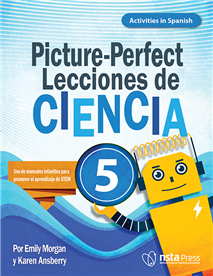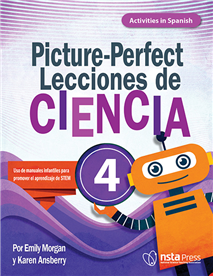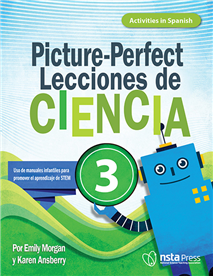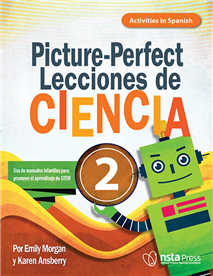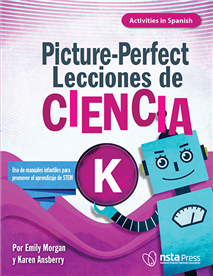All Informal Education resources
Lesson Plan
Journal Article
The Science from Scientists Experience Goes Virtual
By Cortney Wieber, Jayne Mirabassi, Esther Niemasik, and Ellen Attorri
Journal Article
By Heather Lavigne, Ashley Lewis Presser, Deborah Rosenfeld, Marisa Wolsky, and Jessica Andrews
NSTA Press Book
A supplemental book of just the student activity pages in the Picture-Perfect Science series are available for each of the five Picture-Perfect teacher books. All of these activity pages are classroom-ready and written in Spanish....
By Emily Morgan, Karen Ansberry
NSTA Press Book
A supplemental book of just the student activity pages in the Picture-Perfect Science series are available for each of the five Picture-Perfect teacher books. All of these activity pages are classroom-ready and written in Spanish. ...
By Emily Morgan, Karen Ansberry
NSTA Press Book
A supplemental book of just the student activity pages in the Picture-Perfect Science series are available for each of the five Picture-Perfect teacher books. All of these activity pages are classroom-ready and written in Spanish. ...
By Emily Morgan, Karen Ansberry
NSTA Press Book
A supplemental book of just the student activity pages in the Picture-Perfect Science series are available for each of the five Picture-Perfect teacher books. All of these activity pages are classroom-ready and written in Spanish....
By Emily Morgan, Karen Ansberry
Lesson Plan
NSTA Press Book
A supplemental book of just the student activity pages in the Picture-Perfect Science series are available for each of the five Picture-Perfect teacher books. All of these activity pages are classroom-ready and written in Spanish....
By Emily Morgan, Karen Ansberry
Journal Article
Spring Into Action This April With Global Citizen Science Month
By Darlene Cavalier, Caroline Nickerson, and Jill Nugent
Journal Article
Connecting Learning Through Citizen Science in the Classroom, Community, and Online
By Alexandria Brasili and Ruth Kermish-Allen



